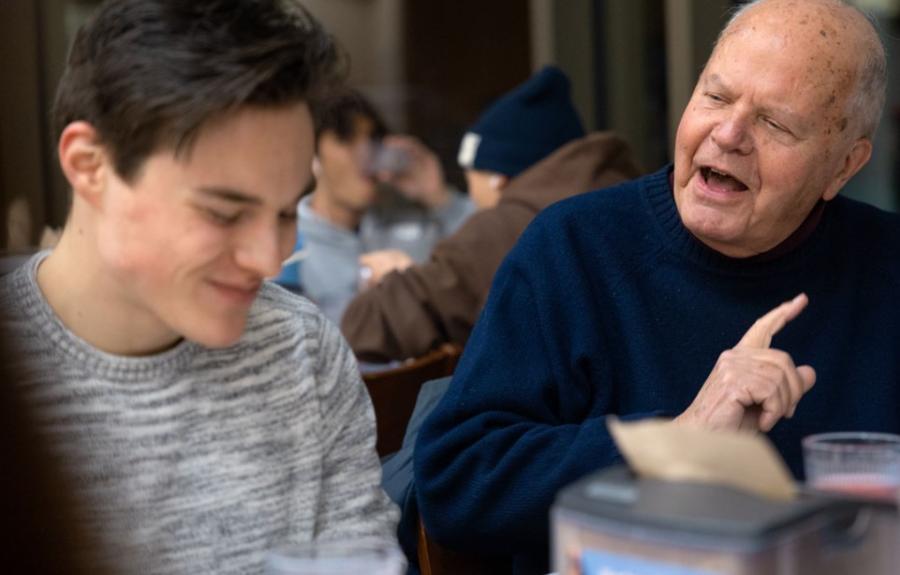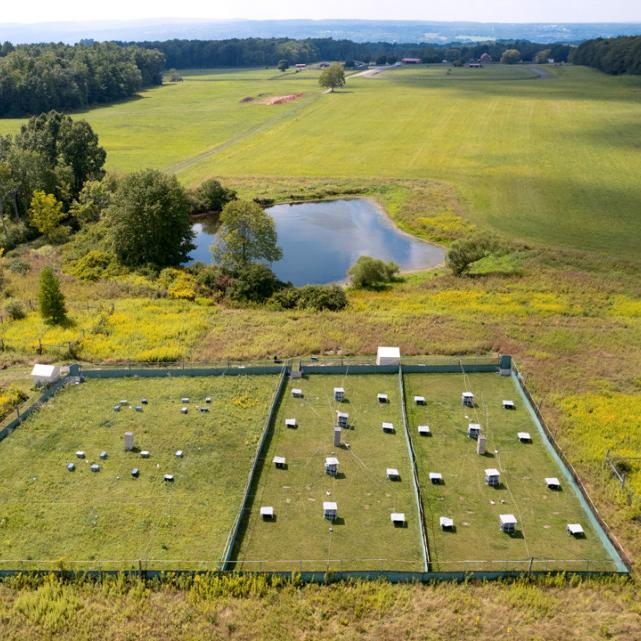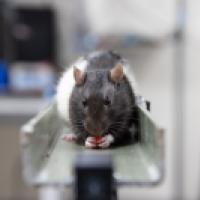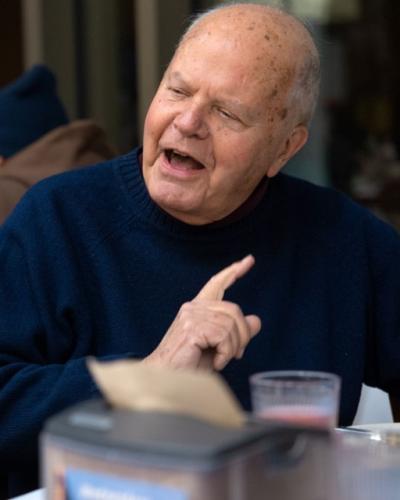When Dean Kavita Bala needed guidance on defining tenure and promotion standards for the newly named Cornell Ann S. Bowers College of Computing and Information Science, there was one person who had the experience, the depth and breadth of knowledge, to help: Charlie Van Loan, professor emeritus of computer science.
It didn’t matter that he had retired in 2016.
It didn’t matter that Van Loan had already served as dean of faculty for five years after gaining emeritus status, even staying an extra year when the COVID-19 pandemic hit. When Bala called, Van Loan immediately agreed to help.
“He does these things purely out of a sense of duty and love for Cornell and a desire to give back,” said Bala, who listed a number of other retired faculty who have stepped up to fill a need. “It’s an inspiration. They give Cornell their best where Cornell needs it the most.”
Van Loan is part of a large community of retired academics and faculty that continue to contribute to and participate in university life – and are connected through Cornell Academics and Professors Emeriti (CAPE), an organization founded in 1982 that aims to provide community and support for retiring academics, keeping them connected to each other and Cornell. On Jan. 19, more than 100 members of CAPE celebrated its 40th anniversary at Moakley House.
“There’s often some dread at the idea of retirement,” said Charles Walcott, professor emeritus of neurobiology and behavior in the College of Agriculture and Life Sciences (CALS), “because faculty feel as they retire they’re going to lose the interaction with colleagues and students and staff which makes the Cornell experience so wonderful. What CAPE tries to do is help them through that transition, by pointing out that in general you can continue on but with greater freedom to do what you want.”
CAPE has a broad membership that includes faculty (and those awarded the title of emeritus/a), librarians, extension associates, academic counselors and advisers. The community includes around 1,200 people, about 650 of whom are local, with many still actively involved in research and teaching at Cornell.
In 2015, CAPE conducted a survey of its membership: nearly 80% of the 200 respondents indicated they were actively involved in research and scholarship and were still publishing; 57% said they were still involved in teaching and coursework; 44% were advising students in some form; and a third were serving on university committees.
“I don’t think many people appreciate the breadth and depth of contributions emeriti faculty still make,” said Hudson Kern Reeve, professor in the College of Agriculture and Life Sciences and chair of the Department of Neurobiology and Behavior, who still relies on Walcott, retired since 2011, for teaching needs, mentorship of junior faculty and graduate students, valuable administrative advice, and friendship. “We don’t want to throw away all those years of wisdom but to keep using them to improve ourselves in light of what’s worked in the past. Charlie is a conduit to our deep history.”
Cornell’s ‘treasure’
Members of CAPE have banded together over the years to develop programs that fulfill needs at Cornell: for many years, CAPE’s Information Outpost program set up at key locations on move-in day to direct new students around campus; more recently, program committees have been involved in documenting the contributions of their colleagues and departments and counseling academics nearing retirement. CAPE holds a seat on the faculty senate, and the executive council, currently comprising 11 people with a range of academic titles, meets with the dean of faculty each month to stay abreast of issues impacting faculty and to advocate for the needs of its members.
Individually, CAPE members teach classes, give guest lectures, write letters of promotion, serve in administrative roles or on committees for their departments and the university, and represent the university on national committees and boards. They fundraise, advise graduate students and undergraduates, and mentor junior and senior faculty still in the ranks.
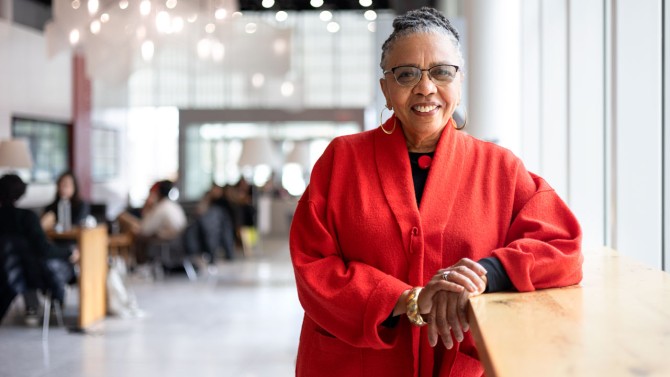 , Click to open gallery view
, Click to open gallery view
Credit: Sreang Hok/Cornell University
Lorraine Maxwell, professor emerita of human centered design in the College of Human Ecology and incoming president of the Cornell Academics and Professor Emeriti (CAPE) executive council, led CAPE’s involvement in a fundraiser for local childcare centers at the height of the pandemic.
Frank Robinson, the director emeritus of the Herbert F. Johnson Museum of Art, worked part-time in Alumni Affairs and Development for two years after his retirement from the museum in 2011. Now 83, he still maintains contacts with some museum donors – all of whom have become close friends. But these connections are also partly on behalf of Cornell and sustain a connection to the school and museum. The bond between alumni and their former, now-retired professors is similar, Robinson said.
“The members of CAPE are a treasure for Cornell,” said Robinson. “They have so much experience, so much knowledge of the history of Cornell, their departments, so many meaningful relationships. In retirement, you’re still a highly trained, intelligent person, and even if you might not have quite as much energy, you still have something to contribute. You’re a tool, an instrument, and you want to be useful.”
CAPE members have also organized numerous initiatives to help the broader Ithaca community. Lorraine Maxwell, professor emerita of human centered design in the College of Human Ecology and incoming president of the CAPE executive council, led CAPE’s involvement in a fundraiser for local childcare centers at the height of the pandemic, which overlapped with her research on child development and wellbeing.
“These folks just do a stand up job helping in any way,” said CAPE’s former administrative assistant Cindy Robinson, who retired at the end of January after 15 years. “I'll walk away as a retiree changed by their example.”
Creating community
The structure of community often falls away in retirement – and one of CAPE’s aims is to maintain and expand a new community infrastructure for its members.
Cindy Robinson sent weekly, sometimes daily, emails filled with announcements that might engage and interest the CAPE community, from lectures, concerts, exhibitions and timely articles, to workshops about Medicare and estate planning. During the pandemic, she became a command center for locating and directing CAPE members to vaccination sites and providing members with daily updates and local COVID-19 statistics; this was especially important as the pandemic ebbed and flowed.
“Cindy has done such a terrific job of holding the whole thing together, and being a voice for it, and helping all of us,” Walcott said.
CAPE has long held a lecture series, with speakers from Cornell and elsewhere, that has drawn crowds of more than 100, as well as a more recent “Cornell Collects” series, that provides tours of various collections on campus. Before the pandemic, they also hosted frequent social hours – more than 200 people attended the last one before campus shut down.
For many members, the opportunity to meet other retirees deepens their appreciation and sense of connection to Cornell.
“As a faculty member, you've spent so much of your mental energy on ideas, and we still want to be intellectually active,” Maxwell said. “Many of us have also been siloed, and it’s nice to meet people from other areas of the university. CAPE is valuable in that way.”
“Once I became a member of CAPE and participated in the executive council and all the activities, I became much more aware of the variety and depth and quality of Cornell, whether it’s the veterinary school or the physics department or what have you,” Frank Robinson said. “It’s not that I wasn’t aware of such places, but now I met the people, heard them speak, served with them. I felt closer to the whole range of this truly great institution.”
With an endowment from Albert Podell ’58, CAPE also provides grants for continuing research in retirement – awarding between $25,000 and $30,000 annually.
In recent years, CAPE has worked to formalize and standardize processes and perks for retiring faculty and academics across departments and colleges – drafting standards that now appear on the dean of faculty’s website. With leadership from Van Loan, CAPE also pushed to expand eligibility for emeritus status to include Research, Teaching and Extension (RTE) faculty and other academic and administrative positions.
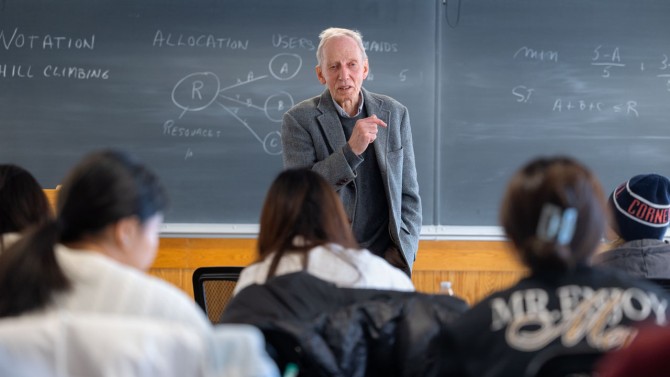 , Click to open gallery view
, Click to open gallery view
Credit: Sreang Hok/Cornell University
At 90, Daniel Peter Loucks, professor emeritus of civil and environmental engineering in Cornell Engineering, continues to conduct research and teach classes - this semester, Public Systems Modeling.
“Cornell has this tremendous teaching-research engine that runs on not just the tenure-track and tenured faculty, but the lecturers, the researchers, the extension associates,” Van Loan said. “If you’ve been a senior lecturer for 20 years, you deserve emeritus status. You deserve that kind of recognition.”
CAPE plays an important advocacy role for its membership as well. “If there are concerns from our membership, we can lay them out in dialogue with the dean of faculty,” said Elizabeth Earle, outgoing president of the CAPE executive council and professor emerita of plant breeding and genetics (CALS). “There are lots of issues that have emerged – parking and transportation and what benefits different groups get – these all reflect how retirees are treated by the university, and we make the case to the university that this is a valuable group of people, and they should be treated well.”
Along these lines, Van Loan said CAPE is an important symbol of the university’s commitment, even for those retired academics who don’t directly use CAPE’s resources. “The number of emeriti faculty and retirees – it’s bigger than any college, and the talent is huge,” Van Loan said, “and the university’s commitment to CAPE is a statement about how they value all retired faculty.”
For Reeve, Walcott’s contributions have reinforced the importance of an older generation’s participation – and of making sure retired faculty know they’re welcome and appreciated; in his department, all retired faculty are invited to take part in meetings and discussions. “We draw on their wisdom,” he said. “We hope Charlie stays involved as long as he’s willing to give his time.”
“There’s an attitude of: ‘we’re all in this together’ that makes Cornell so special,” Walcott said. “It’s why I like to continue to be involved. There’s an incredible richness and openness here, and the result is truly remarkable." Please read entire article in the Cornell Chronicle.

